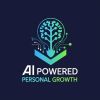Goal setting is a timeless concept in personal development. For centuries, humans have strived to create clear, actionable steps toward their dreams. However, as we dive deeper into the age of technology, artificial intelligence (AI) has begun to revolutionize how we set and achieve our goals. Gone are the days of vague resolutions or rigid goal-setting frameworks. In the digital age, AI is enabling a more personalized, adaptable, and insightful approach to achieving goals. But what exactly makes AI so effective in this context, and how can you use it to set and accomplish your objectives? In this article, we explore the science behind goal setting and how AI is making a powerful impact.
The Science of Goal Setting: How We Achieve Success
Understanding the science of goal setting helps us make informed decisions when integrating AI tools into our plans. The process of setting goals involves several key components:
- Clarity: Clear, specific goals are more likely to be achieved than vague ones. The SMART framework (Specific, Measurable, Achievable, Relevant, and Time-bound) is widely recognized for this reason.
- Commitment: The motivation to follow through with your goal is critical. Behavioral science tells us that the more committed we are to a goal, the higher the chance of success. This is why breaking large goals into smaller, manageable tasks is important.
- Feedback: Regular feedback helps us track progress, stay motivated, and adjust our strategies if necessary. Whether through self-reflection or external support, feedback provides clarity on what’s working and what isn’t.
- Accountability: Social or internal accountability can push us to stay on track. Knowing someone or something is monitoring progress can be a powerful motivator.
AI enhances each of these components by offering precision, adaptability, and real-time insights. Let’s explore how AI works alongside these elements to help you achieve your goals.

How AI Boosts Clarity in Goal Setting
Clear goal setting starts with a deep understanding of what you want to achieve. AI’s ability to provide clarity goes beyond simply setting a goal. It helps refine your goals, breaking them down into actionable steps, and creating realistic timelines. Some AI tools can evaluate your past performance and help you recognize patterns in your behavior. For example, AI-powered goal-setting apps like LifeRPG use machine learning to offer personalized suggestions based on your progress. They look at your habits, skills, and challenges to recommend specific goals and tasks that match your capabilities and interests. AI can also help with goal prioritization. With multiple goals in mind, it can assess which tasks align best with your long-term objectives and which ones might need more immediate focus. This feature is essential for people juggling multiple responsibilities, as AI tools can highlight where to direct attention for maximum results.
AI and Commitment: Staying Motivated and Focused
One of the biggest challenges in goal setting is maintaining motivation and commitment over time. While traditional goal-setting methods focus on willpower and determination, AI offers a data-driven approach to keeping you on track. AI-powered apps often come with reminders, notifications, and progress tracking features to keep you engaged. For example, habit-tracking apps like Habitica use gamification to make goal completion fun and rewarding. When you successfully achieve a task, you earn rewards like points or virtual items, which makes the process more engaging. Furthermore, AI can help you visualize your progress. Many AI tools offer data visualization features like graphs and charts that track your progress in real-time. When you can see how far you’ve come, it can be incredibly motivating, especially when you reach milestones along the way.
AI and Feedback: Real-Time Insights for Goal Adjustment
Feedback is an essential element of the goal-setting process. However, traditional methods of feedback–whether from yourself or a mentor-often come with delays. AI, on the other hand, provides real-time feedback to ensure that you’re on the right path. AI-powered apps like Coach.me offer instant feedback on how you’re progressing toward your goals. For instance, if you’re trying to build a new habit, the app can track your consistency and provide immediate insights about whether you’re keeping up with your plan. But feedback isn’t just about telling you how you’re doing. AI systems can also identify patterns and trends in your behavior. If you consistently fail to complete certain tasks, the app will offer insights into why this might be happening. It might suggest adjusting your schedule, tweaking your environment, or reevaluating your goal. These data-driven insights allow you to make real-time adjustments and avoid the frustration of working blindly toward a goal that isn’t working.

Accountability: How AI Helps You Stay Accountable
Accountability is key to achieving any goal. Whether it’s external (like a coach or mentor) or internal (self-discipline), knowing you’re being held responsible can provide the extra push you need. But how does AI fit into the accountability equation? AI tools act as personal assistants, gently nudging you to stay focused. Many apps let you share your goals with a community of users who can offer support and encouragement. This built-in accountability is especially helpful for long-term goals that require sustained effort. For example, the MyFitnessPal app uses AI to track your eating and exercise habits. It not only tracks your progress but also sends reminders to keep you accountable. It can notify you when you’ve reached a daily target, helping to reinforce your commitment to a healthier lifestyle. In the same way, AI can integrate with other digital platforms, such as your calendar or task management systems. It can hold you accountable by setting reminders for meetings, deadlines, or tasks related to your goals, ensuring that nothing is forgotten.
AI-Powered Goal Setting: How to Maximize Your Success
To make the most out of AI in your goal-setting journey, there are several strategies you can implement. Here are some ways to ensure that AI truly works for you:
- Combine AI with Traditional Methods: While AI offers powerful insights, it’s best to combine it with time-tested goal-setting techniques. Use the SMART framework alongside AI tools to ensure your goals are clear and actionable.
- Set Small, Measurable Goals: AI can break down large goals into smaller tasks, but it’s essential to make sure that each task is measurable. This keeps you motivated and allows you to track your progress in a tangible way.
- Use AI to Track Habits: AI is excellent at monitoring habits. Whether you’re tracking productivity, wellness, or personal development, AI-powered tools can help you keep consistent and adapt as needed.
- Regularly Adjust Your Goals: AI isn’t just a set-it-and-forget-it tool. Regularly adjust your goals and strategies based on the insights AI provides. This flexibility ensures that your goals remain realistic and achievable.

Conclusion: The Future of Goal Setting with AI
In the age of digital transformation, AI is not just a futuristic tool-it’s already here to enhance the way we set and achieve our goals. By offering clarity, motivation, feedback, and accountability, AI is reshaping how we approach success. Whether you’re an entrepreneur, student, or professional, leveraging AI for goal setting can make your aspirations more attainable than ever before. The science of goal setting tells us that clarity, commitment, feedback, and accountability are crucial. AI integrates all these elements seamlessly, offering a personalized, adaptive approach to reaching your full potential. As technology continues to evolve, AI will only become more sophisticated, providing even greater opportunities for goal achievement. If you’ve been struggling with traditional goal-setting methods, integrating AI might just be the game-changer you need to unlock your true potential.


